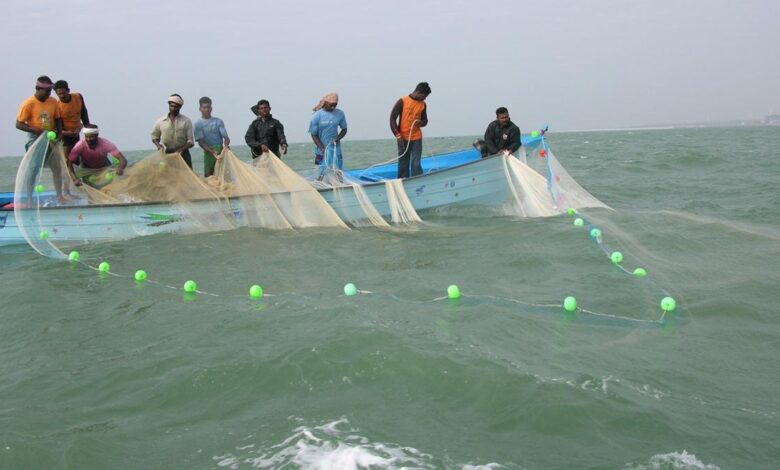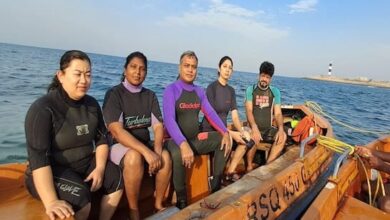
In a significant legal development, the Supreme Court has agreed to hear a plea filed by fishermen who are challenging the Tamil Nadu government’s ban on purse seine fishing. This decision has the potential to reshape the debate between environmental conservation efforts and the economic interests of local fishing communities, raising important questions about sustainable practices and livelihood security.
Background: The Ban on Purse Seine Fishing
Purse seine fishing, a widely used method in the region, involves encircling a school of fish with a large net and drawing it closed like a purse. The Tamil Nadu government imposed a ban on this method, citing environmental concerns and the need to protect marine biodiversity. Officials claimed that the technique was leading to overfishing and harming the ecological balance in coastal waters.
- Environmental Concerns: The ban was implemented to safeguard fish populations and ensure the long-term sustainability of marine life. Proponents argued that restricting purse seine fishing would allow fish stocks to recover and promote a healthier marine ecosystem.
- Economic Impact: However, the method is also a critical source of livelihood for many local fishermen. Critics of the ban contend that it has severely disrupted their income, pushing families into economic hardship without providing adequate alternatives or compensation.
The Fishermen’s Plea: Arguments and Implications
The plea brought before the Supreme Court by the affected fishermen challenges the validity of the ban. The key arguments presented include:
- Questionable Evidence: The fishermen argue that the scientific data used to justify the ban is inconclusive and does not accurately reflect the current state of fish populations. They claim that the ban is based on outdated studies that fail to consider recent improvements in fishing practices.
- Economic Hardship: For many in Tamil Nadu, purse seine fishing is not just a technique but a way of life. The ban has left numerous families without a reliable source of income, forcing them to seek alternative, often less profitable, methods of fishing.
- Need for a Balanced Approach: The petition stresses that while environmental protection is essential, it must be balanced with the socio-economic realities of local communities. The fishermen call for a more nuanced policy that incorporates sustainable practices without completely eliminating traditional fishing methods.
Government and Legal Perspectives
The Tamil Nadu government has maintained that the ban is a necessary measure to preserve marine ecosystems and ensure long-term sustainability. However, the decision to suspend purse seine fishing has met with resistance from local communities and has sparked a broader debate about the role of government in regulating natural resources.
- Policy Rationale: Government officials argue that the ban will ultimately benefit both the environment and the economy by promoting sustainable fishing practices and preventing the depletion of marine resources.
- Legal Review: The forthcoming hearing in the Supreme Court is expected to scrutinize whether the ban was implemented following proper legal procedures and whether the evidence supporting it is robust enough to justify such a sweeping measure.
- Balancing Interests: The case represents a critical junction where environmental policy and economic rights intersect. The Supreme Court’s decision could set a precedent for how similar conflicts are resolved in the future.
Potential Outcomes and Future Implications
Should the Supreme Court rule in favor of the fishermen, it could lead to a reassessment of current environmental policies in Tamil Nadu. Potential outcomes include:
- Revised Regulations: A ruling favoring the fishermen might prompt the state to revise its policies, potentially allowing for a regulated form of purse seine fishing that safeguards both the environment and local livelihoods.
- Economic Relief: Easing or lifting the ban could provide much-needed relief to the fishing community, restoring an essential source of income and revitalizing the local economy.
- Enhanced Monitoring: The court may mandate the implementation of stricter monitoring and sustainable practices, ensuring that any permitted fishing activities do not compromise marine biodiversity.
Conversely, if the ban is upheld, it would reinforce the government’s commitment to environmental conservation, albeit at the cost of significant socio-economic disruptions for local communities. This outcome would likely lead to increased calls for support measures for affected fishermen, including alternative livelihood programs and financial compensation.
Conclusion: A Pivotal Decision for Tamil Nadu
The Supreme Court’s decision to hear the fishermen’s plea marks a pivotal moment in the ongoing struggle to balance environmental sustainability with economic stability in Tamil Nadu. As both sides present their arguments, the case stands as a testament to the complex interplay between natural resource management and the rights of local communities. The outcome of this hearing will have far-reaching implications, not only for the affected fishermen but also for environmental policy and sustainable development practices across the region.










